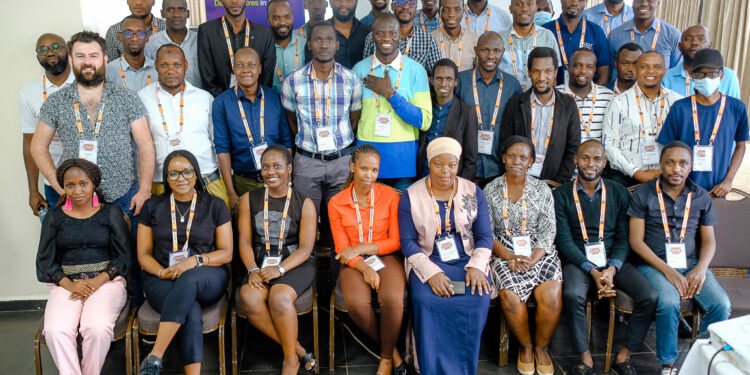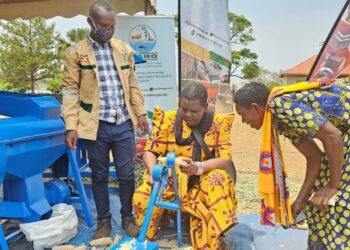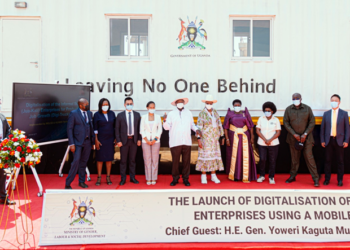The Uganda Network Operators Group (UGNOG) excelled at hosting yet another successful summit following two previously virtually held in 2020 and 2021.
UGNOG is a forum created with the aim of capacity building and technology development within Uganda, creating an environment where operators can discuss best industry practices and empower the community to meet the ever-changing demands of today’s global network.
‘I have always been passionate about the internet, what we can achieve with it, and what challenges we can address with it,’ said Isabel Odida, the convener and founder of UGNOG, in her opening remarks.
She highlighted that UGNOG was created to skill as many people as possible to run and own our internet as Ugandans, create a platform that addresses challenges that come with internet development in the country, and look at ways to further better the internet.
The 3rd Annual UGNOG summit was held on 04th October 2022 at Skyz Hotel Naguru and kickstarted with a training session conducted on 3rd October 2022.
The summit convened a host of internet operators who came together to exchange ideas on best industry practices in bolstering the growth of Uganda’s internet ecosystem.
Esteemed speakers included Barry Macharia, Strategic Development Manager, Raxio Data Centre, Ben Ryall, Edge Strategy Manager, Meta, Brian Masiga, Network Specialist, Research and Education Network (RENU), Emmanuel Mugabi Governance and Cybersecurity expert, NITA, Mary Namara CERT Services, Uganda Communications Commission (UCC), Mike Kwatampora Technical Director, Uganda Internet Exchange Point (UIXP), and Yazid Akanho Technical Engagement Specialist Middle East and Africa (MEA) ICANN.
The event’s sponsors included Raxio Data Centre, Internet Society, Meta, Global NOG Alliance, Team Cymru, Workonline Communications, Flexoptix, and AFRINIC.
The discussion kicked off with an overview of Uganda’s internet landscape and Development roadmap as presented by Emmanuel Mugabi, a Governance and Cybersecurity expert at Nita Uganda;
• 12.86 million Ugandans living in areas without 4G coverage,
• 22 million internet subscriptions
• 6% of individuals 10 years or older used the internet
• 85.7% of internet users access the internet via mobile phone and only 11.9% on a computer at home or work.
According to Emmanuel Mugabi, part of the efforts that can be done to improve and drive internet penetration is the establishment of utility corridors with more ducts for Internet Service Providers (ISPs) to reduce the cost of laying fibre and the internet.
‘The establishment of utility corridors should include ducts infrastructure where ISPs can share those costs to lay their fibre without digging the road for more ducts which are bound to increase the cost of laying fibre and the internet if everyone is doing it on their own,’ he said.
Other interventions included the expansion of fibre routes to overall districts in Uganda, consumer protection, efficient and effective spectrum management, and the increased availability of electricity, amongst other things.
Barry Macharia from Raxio Data Centre emphasized the relevance of carrier-neutral data centres to the internet ecosystem.
‘We build facilities where networks, SMEs, banks, hospitals, and all sectors of the economy can host their equipment, and we also offer seven layers of physical security, redundancy, and a conducive environment.’
He highlighted Raxio Data Centre’s expansion plans in new African markets that previously lacked carrier-neutral data centres, such as the Democratic Republic of Congo, Ethiopia, Tanzania, Mozambique, and Angola.
He said, ‘we have a Pan African dream to go to areas that have no facility or carrier-neutral data centre today.’
‘That is our goal at Raxio,’ he continued.
Mike Kwatampora represented the Uganda Internet Exchange Point (UIXP), highlighting UIXP’s presence at Raxio Data Centre and the importance of exchange points in driving traffic locally to enhance internet connectivity in Uganda.
‘We are present at Raxio Data Centre and hope that with the number of people coming into Raxio, they will be able to peer with us and extend that peering to our legacy networks to enjoy.’
He continued by saying that the more customers Raxio gets peering with the UIXP, content will continue to remain localized, hence enhancing connectivity.
In her remarks, Mary Namara emphasized the importance of secure internet and shared a brief overview of UCC’s Computer Emergency Response Team (CERT).
‘The CERT is the single point of cyber security information dissemination, incident reporting, and handling. What we do is we handle reported and falsie cyber security incidents in the communications sector,’ she said.
She further highlighted the importance of working with multiple CERTs and that a bigger percentage of the incidents received are reported from the cybercrime unit in police, as well as pre-determined incidents.
‘Cybercrime is a borderless activity, so we have to work with multiple CERTs; in Africa, we work with the Africa CERT to be able to handle some of these cyber security incidents.’
Other speakers included Ben Ryall from Meta, who discussed edge control and serving traffic to internet users, and Yazid Akanho from MEA ICANN, who discussed DNSSEC security.
The summit concluded with a social event hosted by Raxio Data Centre, dubbed the Peer Fest, which saw guests interact over rounds of beer and ‘peer talk’.
Do you have a story in your community or an opinion to share with us: Email us at editorial@watchdoguganda.com













